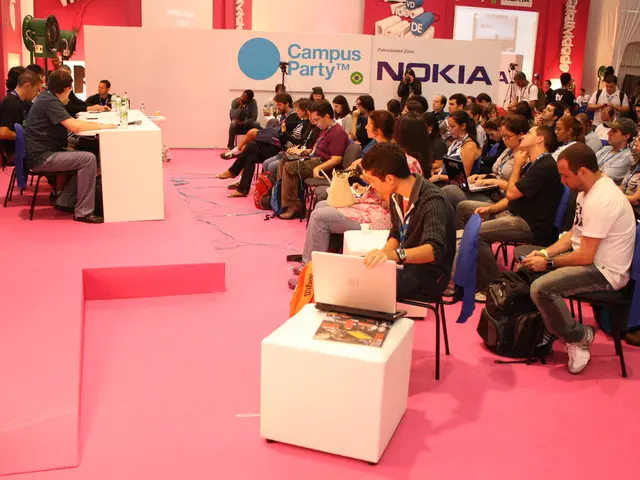Crackdown on immigration under Trump impacts renewable energy sector
In a recent development, a raid targeting 475 workers, predominantly from South Korea, at the Hyundai electric vehicle manufacturing facility in Georgia has caused a delay in the project. The complex, which secured $2.1 billion in subsidies from the state and nearby counties, was proposed by former US President Donald Trump.
The raid, allegedly due to workers operating illegally according to Immigration and Customs Enforcement, has raised concerns about the difficulty of establishing factories in the US due to visa issues. South Korean President Lee Jae Myung expressed his concerns in a statement, urging for a solution to this issue.
The Hyundai EV manufacturing facility in Georgia is part of a growing "battery belt" in the Southeast, which also includes facilities like SK Battery America, Hanwha Qcells' solar panel plant, and a Kia EV manufacturing facility. The delay in the Hyundai project affects the battery factory being built with LG Energy Solution, as South Korean workers at other LG Energy Solution production sites and an LG/General Motors plant are preparing to depart or have already departed due to visa concerns.
The administration is reportedly in discussions with state governors and the project's developers, and is finishing its required reviews. Meanwhile, the administration's decision on the delayed Revolution Wind project is soon expected, with Interior Secretary Doug Burgum indicating that a decision will be made soon.
Connecticut Gov. Ned Lamont (D) has shown openness to discussing power projects involving natural gas, provided the administration allows Revolution Wind construction to resume. However, as of Wednesday, a meeting with President Donald Trump, as proposed by Rhode Island Gov. Dan McKee (D), has not been secured.
Amidst these developments, it is worth noting that the state of Georgia hosts approximately 100 Korean-owned facilities, employing 17,000 people. Several detained South Koreans have valid visas, according to their attorney, which adds a layer of complexity to the situation.
The impact of this raid extends beyond the Hyundai project, potentially having a chilling effect on foreign investment in US factories, particularly clean energy projects. As the situation unfolds, it is crucial to monitor the discussions between the administration, state governors, and project developers to understand the future of foreign investment in the US manufacturing sector.








